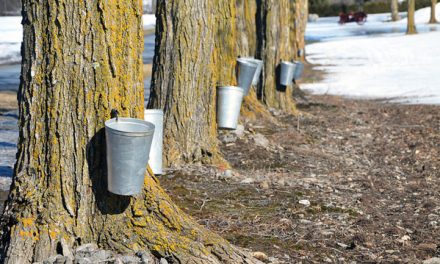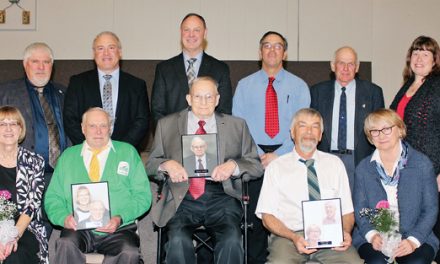OTTAWA – The recent attempt to amalgamate five of the country’s top seed grower associations has failed – for now.
On Thurs. Aug. 27 a final vote was tallied from members of the Canadian Seed Growers Association (CSGA); Canadian Seed Trade Association (CSTA); Canadian Seed Institute (CSI); Commercial Seed Analysts Association of Canada (CSAAC); and the Canadian Plant Technology Agency (CPTA).
The expected unanimous decision to join the forces of these five groups into a new organization called Seeds Canada was stymied when CSGA voted against it
The Canadian Seed Growers Association balked at the idea even though many of its members were enthusiastic but cautious about the consolidation.
A press release from the CSGA stated, “This result is disappointing, and the boards of each participating organization will now consider how to move forward. Without a unanimous decision, the boards of each organization will reconvene to determine the next steps. An update on this matter is anticipated by the middle of September.”
Past president of the CSGA Jonathan Nyborg said prior to the vote, “The Seed Synergy partners began discussions on a next generation seed system for Canada about five years ago.”
According to the National Farmers Union the plan was flawed from the start. In an opinion piece on the NFU website they wrote the five groups collaborating under the name Seed Synergy involved in the potential merger based their vision on a white paper. The idea was to increase seed companies’ revenues with new efficiencies. The NFU took the position that the union of the five organizations would result in a loss of control and revenue for farmers, public plant breeders and consumers.
The amalgamation if successful would bring the five organizations regulatory, service and lobbying functions under a new governance structure.
Describing the reaction to the idea from various groups, Nyborg said, “The seed grower members of the CSGA are a diverse group and there have been a range of responses to the amalgamation proposal. Some members are supportive of the proposal as is, others support the proposal but would have liked to see more details, and others do not support amalgamation under any circumstances.”
Among the concerns about the amalgamation was that policy and regulatory changes in the long term might leave smaller seed producers behind.
“I really don’t see that happening,” said Nyborg. “The Seeds Canada proposal is for a new, national organization that represents the interests of everybody in the seed sector value chain. Everyone becomes equal. One member, one vote. It is not in anybody’s interest to squeeze smaller independent growers out.”
The idea of a single group dictating regulations and polices that were not necessarily beneficial to all growers was not thought to be a problem by those in agreement with the amalgamation. The CSGA is responsible for developing standards and procedures for pedigreed seed crop production and for certifying seed crops that meet those standards. They also recognize plant breeders and certify Breeder and Select status seed.
“The CSGA has a long and proud tradition of working with government, both federal and provincial, and other stakeholders to ensure that its rules and requirements benefit Canadian agriculture. I am confident that this will continue in the future,” said Nyborg.
In a letter to the Minister of Agriculture, Marie-Claude Bibeau, members of the Kingston Area Seed System Initiative (KASSI), a non-profit group founded by local farmers, backyard and market gardeners, and concerned community members asked the minister to become involved the Seeds Canada project.
The letter stated, “We are very concerned about the proposal to amalgamate five seed organizations in Canada into one organization, Seeds Canada and the consequences of this amalgamation for the seed system in Canada. Whoever controls seed, controls food. That’s why Canadians should be very concerned about the future of the Canadian seed system,” the letter stated.
Andrew Dawson, a director with the Ontario Seed Growers Association, and a member of the Canadian Seed Growers Association, voted for the consolidation.
Dawson said, “The proposal made a lot of sense and was something that was overdue. I can see several efficiencies coming from the merger of the five organizations.”He said, as a contract grower in the industry he felt he would not be overly affected by it. “However, I can see the value in it for the industry as a whole.” He was aware that there were many concerns being shared by others but he felt they were unfounded due to an overall lack of clear understanding. He also felt some voters were afraid of such radical change at this moment in time.
Some growers had a concern that they would lose their voice in the industry.
Nyborg felt that while such concerns were to be expected they were not the kind of future he envisioned.
He said, “Regulations should be reviewed on a regular basis to ensure that they continue to achieve the results for which they are intended. The CSGA reviews and revises its requirements regularly and has recently completed a targeted three-year modernization initiative resulting in many changes.”
The control over the industry is not so easily lost by growers, large and small.“The Seeds Regulations, which are administered and enforced by the Canadian Food Inspection Agency, have had relatively minor tweaks over the past 10 years but are in need of a thorough review – one of the reasons for the Seed Synergy Collaboration Project in the first place,” said Nyborg.
He said the future of the Canadian seed industry must be determined by Canadians.A concern about how Europe has fared regarding their seed industry, which is very different that its Canadian counter part needs to be looked at from the point of view of the differences between Canada and Europe.
“So, it is very difficult to compare Europe with Canada which is why we need to develop systems and procedures designed in Canada by Canadians for Canadians,” he said.
The seed industry in Canada is in good shape however Nyborg believes there is always room to improve.
He said, “I wouldn’t say that seed growing is in trouble. However, there was increasing recognition amongst seed growers and the seed trade that their futures and prosperity were linked together, so why not work together for the mutual benefit of all seed sector stakeholders,” he added, “We have five separate national seed organizations, each with their own piece of the pie and little to no overlap in their mandates. Amalgamation should result in an organization that can serve its members, and clients for its seed regulatory services, in a more efficient and effective manner.”
Despite the positive feelings by many CSGA members Cathy Christie chair of the KASSI board had a message to the minister of Agriculture and Agri-Food.
“The pandemic-inspired seed shortages this past spring remind us that we need to keep the seed supply in the hands of individual Canadians and farmers, through many local seed growers, and supported by publicly-owned seed research,” she said.












